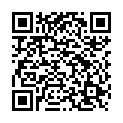|
|
|
| Module code: BBWL-270 |
|
|
4V (4 hours per week) |
|
5 |
| Semester: 2 |
| Mandatory course: no |
Language of instruction:
French |
Assessment:
Written exam (90 min. / Can be repeated semesterly)
[updated 02.01.2019]
|
BBWL-270 (P420-0161) Business Administration, Bachelor, ASPO 01.10.2012
, semester 2, optional course
BBWL-270 (P420-0161) Business Administration, Bachelor, ASPO 01.10.2016
, semester 2, optional course
BBWL-2020-270 (P420-0161) Business Administration, Bachelor, ASPO 01.10.2020
, semester 2, optional course
|
60 class hours (= 45 clock hours) over a 15-week period.
The total student study time is 150 hours (equivalent to 5 ECTS credits).
There are therefore 105 hours available for class preparation and follow-up work and exam preparation.
|
Recommended prerequisites (modules):
BBWL-170 Business French 1
[updated 01.10.2016]
|
Recommended as prerequisite for:
|
Module coordinator:
Prof. Dr. Thomas Tinnefeld |
Lecturer: Prof. Dr. Thomas Tinnefeld
[updated 01.10.2016]
|
Learning outcomes:
After successfully completing this module, students will:
● have improved their French grammar,
● have advanced knowledge of French business terminology,
● have improved their active and passive specialized vocabulary through reading business-oriented French texts,
● be able to understand important parts of the French business vocabulary and be able to use it for their own communicative purposes,
● be able to analyze French texts from various fields of business (economics) linguistically, content-wise and structurally and use this analysis for their own study and career-oriented needs,
● be able to write French business-oriented texts independently with regard to their respective, basic creation criteria,
● be able to address basic regional issues from their target language countries independently,
● have developed a deeper understanding of intercultural content and experiences and be able to derive conclusions for their own behavior from this.
[updated 07.04.2021]
|
Module content:
● Understanding and creating special types of texts such as for example,
business letters, memos, bulletins
● Practice in dealing with oral business situations, such as
small talk, telephone conversations, receiving guests, basic
professional presentations.
● Listening comprehension training for technical language
● Situational, communication-oriented grammar work
● The development and expansion of general vocabulary
● The development of a functional technical vocabulary
[updated 07.04.2021]
|
Teaching methods/Media:
● Use of a multimedia computer language laboratory
● Use of a wide range of multimedia available in the language laboratory
television and video, radio, magazines and newspapers, computer-based
interactivity
● Partner work, group work and role playing
● Presentations by the lecturer
● Student presentations
● Discussions
● The goal is to enable authentic foreign language communication within the teaching environment.
●
[updated 01.07.2021]
|
Recommended or required reading:
Business language textbooks
● Articles from renowned newspapers and magazines from the target language countries
● Individually tailored vocabulary and grammar exercises for the target audience
● Additional information will be announced in the course
[updated 01.07.2021]
|

